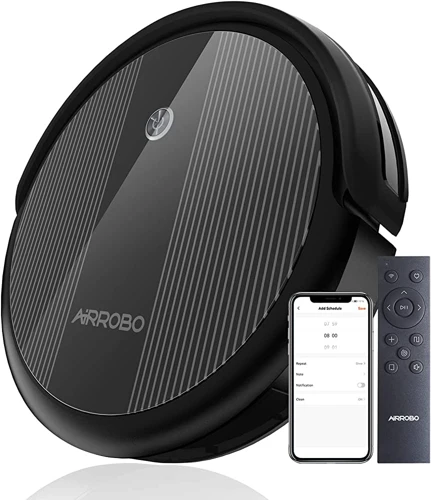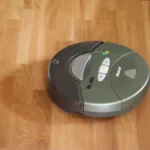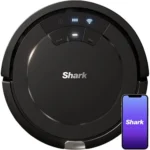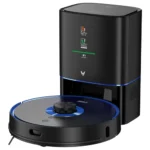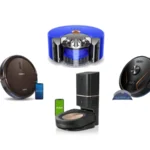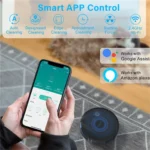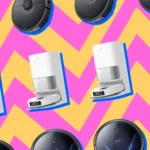Picture this: you’re at work, running errands, or simply enjoying your day outside of your home, when you suddenly remember that you need to vacuum your floors. But fear not – with the advent of smart vacuum cleaners, you can easily schedule a cleaning session to suit your needs remotely. However, that convenience comes with a price, as these devices also present potential security risks that must be taken seriously. In this article, we’ll delve into the intricacies of remote scheduling for smart vacuum cleaners, discuss the security concerns associated with this technology, and provide tips and tricks to help you prioritize your safety when using your device.
Understanding Remote Scheduling
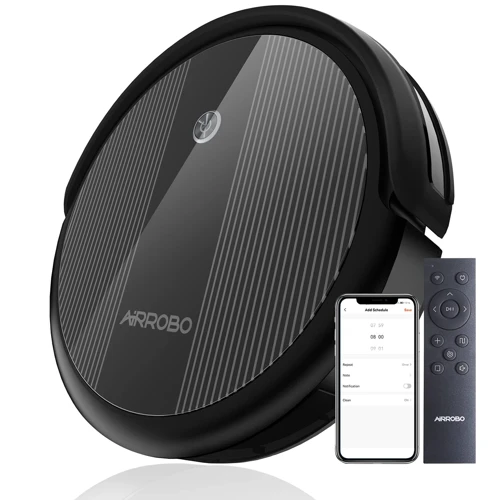
Trying to remember if you scheduled your vacuum cleaner to clean the house before rushing out the door is now a thing of the past. With remote scheduling, you can control and manage your smart vacuum cleaner from anywhere, and at any time. This feature allows you to program and customize the schedule of cleaning sessions to fit your lifestyle. In this section, we will take a closer look at remote scheduling, how it works, and its benefits. If you’re looking to learn more about the advantages of using this technology, check out our article on maximizing remote scheduling.
What is Remote Scheduling?
Remote scheduling refers to the ability to set up a smart vacuum cleaner to clean one’s home at a predetermined time, from a remote location such as a smartphone, tablet, or personal computer. This feature is especially useful for busy people who don’t want to waste their precious time manually operating their vacuum cleaners or for those who simply want to maintain a neat and tidy home without physically being there.
The benefits of remote scheduling are numerous and include:
- Convenience and accessibility
- Saving time and energy
- Energy conservation
Remote scheduling is a feature that has become increasingly popular as smart homes become more prevalent. With the help of Wi-Fi, smart devices like vacuum cleaners can be controlled from virtually anywhere in the world with an internet connection. This has led to an increased level of convenience for homeowners, who can now remotely monitor and maintain their homes without ever having to physically be there.
Some of the most popular smart vacuum cleaner brands on the market offer remote scheduling capabilities, and many of them are equipped with mobile apps that allow users to set up and manage their cleaning schedules with ease. Additionally, many of these apps allow users to adjust the cleaning power and preferences of their vacuum cleaners to suit their individual needs.
While remote scheduling has many benefits, it is important to note that there are also some risks and concerns associated with this feature. In the next section, we will discuss the security risks of remote scheduling for smart vacuum cleaners.
If you want to learn more about the benefits of remote scheduling for smart vacuum cleaners, you can check out our article “Convenience and Accessibility of Remote Scheduling for Smart Vacuum Cleaners”.
How Does it Work?
Remote scheduling is a game-changer when it comes to cleaning homes. With remote scheduling, you don’t have to be physically present to instruct your smart vacuum cleaner to start cleaning. The scheduling function allows you to preset your vacuum cleaner’s cleaning patterns and timetable, giving you the freedom to carry out other activities while your cleaning device works.
Remote scheduling is enabled through an app or platform connected to your smart vacuum cleaner. The app allows you to set up your vacuum cleaner’s cleaning schedule and provides real-time updates on the progress of the cleaning process. Most vacuums have a simple interface that users can operate, allowing them to start, stop, pause or modify the cleaning process from wherever they are.
To set up remote scheduling, you need to ensure that your vacuum cleaner is paired with a stable Wi-Fi network and an internet-connected device such as a smartphone. Your smart vacuum cleaner communicates with your device via the home Wi-Fi network, receiving commands and responding with cleaning data.
Once the vacuum cleaner is set up, you can create a cleaning schedule by selecting the dates and time you want it to start cleaning. Most vacuum cleaners also allow you to set specific cleaning modes, such as spot cleaning or edge cleaning, for specific parts of your home.
With remote scheduling, users can set up their smart vacuums to operate automatically, and this provides a great deal of flexibility and convenience. They can even set it up to run while they sleep, ensuring that they wake up to clean floors every morning.
It’s important to note that different smart vacuum cleaners have different remote scheduling capabilities, and it’s advisable to compare options before making a purchase decision. With this functionality, users can achieve significant time management and energy conservation benefits, and it’s an excellent way to keep your home clean without disrupting your daily routine.
In the next section, we will examine some of the potential security risks associated with remote scheduling for smart vacuum cleaners, and how you can protect your device from these risks.
The Security Risks of Remote Scheduling
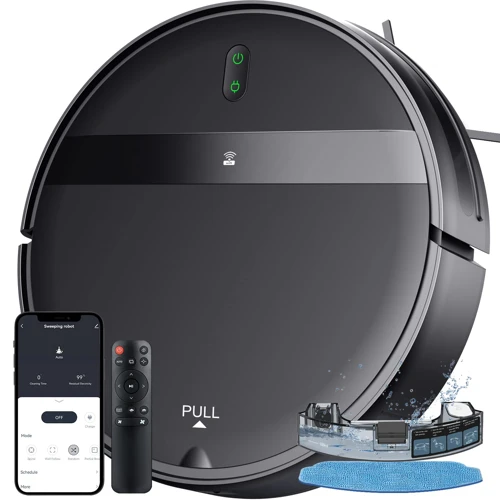
As convenient as remote scheduling for smart vacuum cleaners is, it’s important to acknowledge the potential security risks that come with this feature. By allowing access to your home network, hackers could potentially gain control over your vacuum cleaner and/or obtain sensitive personal information. In this section, we’ll highlight the risks you need to be aware of and offer some tips to keep your home network and personal data secure. To learn more about remote scheduling for smart devices, you can check out our article on remote vacuum scheduling for smart devices.
Potential Hacking Vulnerabilities
Smart vacuum cleaners that offer remote scheduling capabilities are undoubtedly convenient, allowing you to automate your cleaning schedule and adjust cleaning settings even when you’re not at home. However, with these conveniences come potential security risks and vulnerabilities that you should be aware of to ensure that your personal data and privacy are protected.
Hacking vulnerabilities
One of the potential security risks with remote scheduling for smart vacuum cleaners is that they can be vulnerable to hacking. Since these vacuums connect to your home network and the internet, they can potentially be accessed by unauthorized individuals, leaving your personal information exposed. In some cases, hackers may even be able to take control of the vacuum, of course in the event you don’t have the right security measures in place.
To protect yourself from these vulnerabilities, it’s important to use a secure internet connection and home network. You can do this by setting up your network with a strong router password, enabling WPA2 WiFi security, and turning off remote management features, if not necessary. It would be best if you also updated your vacuum’s firmware regularly with the latest software updates and security patches that the manufacturer releases. This will provide the necessary security and fix vulnerabilities that could be exploited by hackers.
Another solution to protect your network is to put your vacuum on a dedicated guest network or a VLAN (virtual local area network), instead of connecting it to your main network. This method protects your primary network from potential attacks, as your guests or IoT devices will only be allowed to access the internet, not the devices on your main network.
While remote scheduling options make our lives more comfortable, we cannot ignore the potential risk for hacking and other security breaches. It is important to ensure you safeguard your network by installing the latest updates as well as configuring your network to have the appropriate security protocols in place.
To learn more about maximizing remote scheduling or comparing smart vacuum scheduling options, check out our related articles.
Privacy Concerns
One major concern with the use of remote scheduling for smart vacuum cleaners is the potential for privacy breaches. As these devices store information about your home layout and cleaning schedule, they could provide valuable data for hackers or third-party companies. To avoid such privacy concerns, there are a few measures you can take:
- Limit Personal Data Sharing: When setting up your smart vacuum cleaner, avoid providing unnecessary personal information. Only give the information that is required for the device’s primary functions.
- Secure Network: Ensure that your home Wi-Fi network is secure with a strong password and data encryption. Use a unique SSID for your network and don’t broadcast it. This way, it becomes more difficult for hackers to find and target your network.
- Update: Regularly update your vacuum cleaner’s firmware and software to ensure that it is operating safely and efficiently. Updated versions of software often have improved security features that can help protect against potential hacks.
It is crucial to verify the privacy policies of your device’s manufacturer to know how they handle your data. Be wary of third-party applications that claim to provide added features for your smart vacuum cleaner, as they may access and share your personal information.
As smart vacuum cleaners become more popular and integrated with other connected home devices, the potential for privacy violations rises. By taking preventive measures such as securing your network and limiting the personal data you share, you can help keep your household safe and secure.
It is also advisable to consult other articles regarding maximizing remote scheduling to use smart vacuum cleaners to their full potential (/maximizing-remote-scheduling/), comparing smart vacuum scheduling options (/comparing-smart-vacuum-scheduling-options/), and tips for troubleshooting remote vacuum scheduling issues (/tips-troubleshooting-remote-vacuum-scheduling-issues/). As technology advances, we can expect future remote vacuum smart home innovations (/future-remote-vacuum-smart-home/) to prioritize both security and energy conservation (/remote-vacuum-scheduling-energy-conservation/).
Protecting Your Smart Vacuum Cleaner
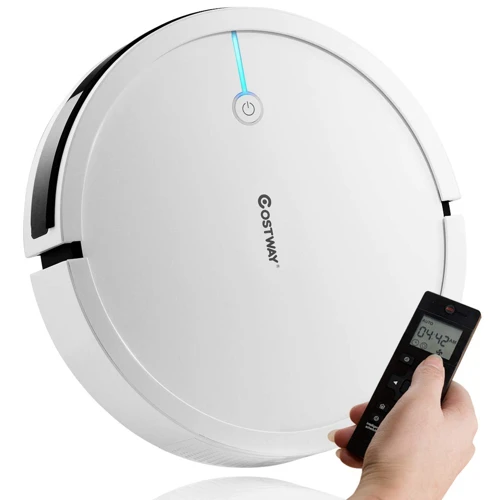
As the number of smart home devices continues to grow, so does the importance of maintaining their security. Your smart vacuum cleaner is no exception. While remote scheduling can make your life easier, it also leaves your device vulnerable to potential hacking and privacy breaches. Taking measures to protect your smart vacuum cleaner is crucial. In this section, we’ll cover some important steps you can take to safeguard your device from cyber-attacks and potential data breaches. So, let’s dive into some effective ways to enhance the security of your smart vacuum cleaner!
Secure Your Home Network
Your home network is the first line of defense when it comes to securing your smart devices such as the smart vacuum cleaner. Here are some ways to ensure that your home network is secure:
| Tip | Description |
|---|---|
| Change Your Default Passwords | When you set up your home network, make sure to change the default username and password for router access. Hackers often use default login credentials to gain access to networks. |
| Enable Encryption | Make sure that your Wi-Fi network is encrypted using WPA2, which is the latest and most secure encryption standard. |
| Disable Remote Access | If you don’t need to access your home network remotely, it’s best to disable this feature. This will make it harder for hackers to gain access to your network. |
| Set Up a Guest Network | If you have guests over who need to use your Wi-Fi network, it’s best to set up a separate guest network. This way, guests won’t have access to your main network, which could potentially have sensitive information. |
| Monitor Your Network | Regularly check your network for any unusual activity, such as unauthorized devices connected to your network. |
By following these tips, you’ll be able to ensure that your home network is secure and that your smart vacuum cleaner, as well as any other smart devices you may have, are protected from potential hacking attempts. Remember, securing your home network is the first step in protecting your privacy and personal data.
Use Strong Passwords and Two-Factor Authentication
Ensuring that your smart vacuum cleaner is secure not only requires maintaining effective home network security, but it also requires remaining vigilant about passwords and user authentication. In today’s world, many people are guilty of reusing passwords across multiple accounts, but that can leave them vulnerable to cyber attacks.
When it comes to your smart vacuum cleaner, you need to ensure you use strong and unique passwords to protect your device from unauthorized access. A strong password should consist of a combination of letters, numbers, and symbols. A password manager can help in creating and keeping track of such passwords.
Additionally, you can further secure your device by enabling two-factor authentication, which adds an extra layer of protection. This way, even if a hacker manages to guess your password, they will not be able to access your smart vacuum cleaner without the second factor of authentication, which is usually a unique code sent to your phone.
It is important to note that you should always change the default password of your smart vacuum cleaner to a strong one before connecting it to your home network. Default passwords may be easily accessible to hackers or may be found online, which greatly compromises the security of your device.
To summarize, using strong passwords and enabling two-factor authentication are necessary measures to keep your smart vacuum cleaner secure from unauthorized access. The following table provides some essential tips for creating strong passwords:
| To create a strong password: | Avoid using: |
|---|---|
| Use a combination of uppercase and lowercase letters | Dictionary words |
| Include numbers and symbols | Names or birthdates |
| Use at least 10-12 characters | Simple passwords like 1234 or qwerty |
By creating strong passwords and enabling two-factor authentication, you can significantly enhance the security of your smart vacuum cleaner and safeguard against potential cyber attacks or unauthorized access.
Regularly Update Your Vacuum Cleaner’s Software
Regular software updates are essential for the security and performance of your smart vacuum cleaner. To keep your device secure, it’s important to regularly check for and install any available updates to the firmware or software. Here are a few reasons why:
- Bug fixes and Security Patches: Many software updates are designed to fix any bugs, glitches or vulnerabilities in the system’s code. Without these patches, your vacuum cleaner may be at risk of cyberattacks and unauthorized access. Regular updates help ensure that any security holes are plugged before they can be exploited.
- New Features and Improvements: In addition to security fixes, software updates may also bring new features, functionality, and performance improvements to your device that can improve your overall experience.
- Compatibility: Updating your vacuum cleaner’s software can also help ensure compatibility with any new devices and technologies as they emerge. This can be particularly important if you have other smart home devices connected to the same network.
To keep your smart vacuum cleaner running smoothly, make sure to check for software updates on a regular basis. You can do this directly from the device’s app or through the manufacturer’s website. By safeguarding your vacuum cleaner’s software through regular updates, you can help protect your home network and sensitive data from cyber threats.
Tips for Safe Remote Scheduling
When it comes to using remote scheduling for your smart vacuum cleaner, it’s important to prioritize safety and security. While this technology offers convenience and ease of use, it can also pose potential risks to your personal information and home network. To help you navigate the world of secure remote scheduling, we have compiled a list of tips to help you maintain the safety of your smart device and personal data. By following these simple measures, you can enjoy the benefits of remote scheduling without compromising your privacy or security.
Only Schedule When Necessary
When it comes to remote scheduling for smart vacuum cleaners, it is important to only schedule cleaning sessions when necessary. This not only helps to save energy, but it also reduces the risk of potential security breaches.
Here are a few reasons why you should only schedule when necessary:
- Reduced risk of security breaches: The more often you schedule your smart vacuum cleaner to clean, the greater the chances of experiencing a security breach. This is particularly true if you are scheduling sessions remotely using a smartphone app, as this could potentially leave your network vulnerable to hacking attempts.
- Energy efficiency: Running your smart vacuum cleaner unnecessarily can be a waste of energy, particularly if you have a large house with multiple rooms. By only scheduling cleaning sessions when necessary, you can save energy and reduce your carbon footprint.
- Less wear and tear: The more you use your smart vacuum cleaner, the faster it will wear out. By limiting the number of cleaning sessions, you can help to extend the lifespan of your appliance and reduce the need for costly repairs.
- Privacy concerns: Allowing your smart vacuum cleaner to run frequently can potentially compromise your privacy, particularly if it is collecting data about your home and sharing this information with third parties. By only scheduling when necessary, you can reduce the amount of personal data that your vacuum cleaner collects.
It is important to strike a balance between keeping your home clean and secure, and conserving energy and preserving the lifespan of your smart vacuum cleaner. Use remote scheduling with care and only when necessary, and don’t forget to take additional precautions to protect your network and personal data.
Limit the Amount of Personal Data You Share
When using remote scheduling for your smart vacuum cleaner, it is important to be mindful of the personal information you share. Although remote scheduling can be convenient, it can also be risky if you are not careful about the information you provide.
To limit the amount of personal data you share, there are a few steps you can take:
| Tip | Description |
|---|---|
| 1 | Only provide necessary information: When setting up your smart vacuum cleaner, only provide the information that is necessary for it to function properly. Avoid giving out personal details that are not required, such as your date of birth or home address. |
| 2 | Use a nickname: Many smart vacuum cleaners allow you to set a nickname for your device. This can be a great way to protect your privacy as it does not reveal your name or any other identifying details. |
| 3 | Avoid connecting other accounts: Some smart vacuum cleaners may allow you to connect your social media accounts or other personal accounts to the device. While this may seem convenient, it can also be risky. Avoid connecting any accounts that contain sensitive personal information. |
| 4 | Review app permissions: Before using a remote scheduling app for your smart vacuum cleaner, review the app’s permissions. Make sure you are comfortable with the information it is requesting access to. If a permission seems unnecessary, do not grant it. |
By taking these steps, you can limit the amount of personal data you share and help protect your privacy while using remote scheduling for your smart vacuum cleaner. Remember, it is always better to err on the side of caution when it comes to sharing personal information online.
Conclusion
In conclusion, while the convenience of remote scheduling for smart vacuum cleaners is undeniable, it comes with certain security risks that should be taken seriously. It is important to be aware of the potential vulnerabilities and privacy concerns associated with these devices.
However, this does not mean that you cannot enjoy the benefits of remote scheduling for your smart vacuum cleaner. By taking a few simple steps, you can significantly reduce the risks and protect yourself and your home:
– Secure your home network: Make sure your Wi-Fi network is properly secured by using a strong password and encryption. This will help prevent unauthorized access to your smart vacuum cleaner and other devices on your network.
– Use strong passwords and two-factor authentication: Choose a strong, unique password for your smart vacuum cleaner’s app and enable two-factor authentication if it is available. This will make it much more difficult for hackers to gain access to your device.
– Regularly update your vacuum cleaner’s software: Keep your smart vacuum cleaner’s software up to date to ensure that any security vulnerabilities are patched.
– Only schedule when necessary: While remote scheduling is convenient, consider only using it when necessary to minimize the risk of someone gaining access to your device and controlling it maliciously.
– Limit the amount of personal data you share: Be mindful of the amount of personal data you share with the smart vacuum cleaner’s app or service. Consider reviewing the app’s privacy policy and adjust the settings to limit the amount of data collected and shared.
By following these tips and taking an active approach to protecting your smart vacuum cleaner, you can enjoy the convenience of remote scheduling without compromising your security or privacy.
Frequently Asked Questions
1. Can my smart vacuum cleaner really be hacked?
Yes, any device connected to the internet can potentially be hacked, including smart vacuum cleaners.
2. What kind of personal data could a hacker access through my smart vacuum cleaner?
A hacker could potentially access your home network and any personal data stored on devices connected to that network, such as passwords, banking information, and personal files.
3. Are all smart vacuum cleaners equally at risk for hacking?
No, the level of risk varies depending on the security measures in place. It’s important to research the security features of a smart vacuum cleaner before purchasing.
4. What is two-factor authentication?
Two-factor authentication adds an extra layer of security to your login process, requiring a password and a unique code sent to your phone or email to access your account.
5. Do I need to update my smart vacuum cleaner’s software regularly?
Yes, updating your smart vacuum cleaner’s software can often include security patches that fix vulnerabilities and protect against hackers.
6. Can I schedule my smart vacuum cleaner when I’m not at home?
Yes, remote scheduling allows you to schedule your smart vacuum cleaner from anywhere as long as it’s connected to the internet.
7. What steps can I take to secure my home network?
You can secure your home network by changing the default password on your router, using a strong password, and regularly updating your router’s software.
8. How do I limit the amount of personal data I share through my smart vacuum cleaner?
Be cautious about granting unnecessary permissions to your smart vacuum cleaner and avoid connecting it to other devices that may contain sensitive information.
9. Is it safe to connect my smart vacuum cleaner to a public Wi-Fi network?
No, public Wi-Fi networks are often unsecured and can put your personal data at risk. Stick to using your smart vacuum cleaner on your home network.
10. Can a VPN protect my smart vacuum cleaner from hacking?
A VPN encrypts your internet traffic, providing an extra layer of security, but it’s not a foolproof solution. It’s important to also follow other best practices for securing your smart vacuum cleaner.
